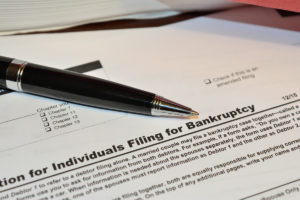Payments You Want to Continue to Make after Filing for Bankruptcy
 When you file for personal bankruptcy protection, whether under Chapter 7 or Chapter 13, an automatic stay immediately goes into effect, preventing your creditors from calling, writing or taking legal action to collect certain debts. There’s a common misperception that, once the automatic stay is in effect, you don’t have to make any payments to creditors. Let’s get a basic understanding of how a bankruptcy filing affects your obligation to pay your debts.
When you file for personal bankruptcy protection, whether under Chapter 7 or Chapter 13, an automatic stay immediately goes into effect, preventing your creditors from calling, writing or taking legal action to collect certain debts. There’s a common misperception that, once the automatic stay is in effect, you don’t have to make any payments to creditors. Let’s get a basic understanding of how a bankruptcy filing affects your obligation to pay your debts.
The Bankruptcy Applies Only to Debts Incurred before the Filing
A personal bankruptcy petition includes only debt that predates your filing. Even if you pay rent or utilities for the same apartment, any amounts due after the date of your bankruptcy petition cannot be discharged or reorganized as part of your bankruptcy proceeding. If you incur new debts while in bankruptcy, and fail to pay them in a timely manner, your creditor will not be barred by the bankruptcy filing from contacting you or filing a legal claim against you.
Furthermore, you may be required to continue paying some debts, even though they predate your petition. For example, child support arrearages must still be paid, even if you’ve sought protection in Chapter 7 or Chapter 13.
Bankruptcy Does Not Affect Liens on Property
If a debt was secured by collateral, such as your home or car, you can discharge past debt, but that won’t prevent the creditor from exercising the right to enforce a lien. Accordingly, while in bankruptcy, you should continue to make payments on all secured debts, if you want to keep the property.
Contact an Experienced Rockwall, TX Bankruptcy Attorney
At the Law Offices of Carrie Weir, all potential clients are entitled to a free initial consultation. To arrange an appointment, contact my office online or call 972-772-3083. I handle Texas personal bankruptcy filings in Kaufman County, Rockwall County, Collin County, Dallas County, Hunt County and the surrounding counties.







